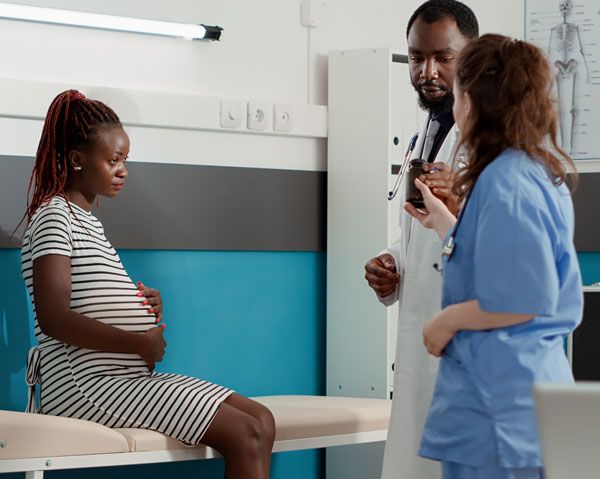Challenge Components
The Health Equity Innovation Challenge is funded to run for three years, with the goal of developing a portfolio of 20-30 companies with innovative solutions to the challenge priorities. Each year the opportunity to apply for the program will result in screening and selecting that year’s cohort of 5-10 companies for acceleration and incubation. The annual program has three stages:
1. Idea Pipeline and Company Selection
The initial stage begins with the publication and marketing of the Health Equity Innovation Challenge statement on a national application portal and challenge website implemented and administered by the Flywheel Foundation.
The application window is now open through March 31, 2024, after which the Flywheel Foundation and a sub-committee of the Title Sponsor and Collaborating Organizations will screen applications, interview founders, undertake initial due diligence, and recommend a short list of twenty (20) companies.
Ten or more Finalist companies will be invited to pitch on Pitch Day on May 4, 2024, after which the top performing companies will be accepted into the 12-week accelerator and 18-month incubator program at the Cabarrus Center in Concord, NC, with access to mentors, grants and investment capital.
2. Health Equity Accelerator Program and Community Engagement
Selected companies form a cohort that will go through an intensive 12-week educational and developmental process administered by the Flywheel Foundation using its accelerator framework, with mentors and subject matter experts provided by the sponsoring institutions and the Cabarrus Center VMS program. An Accelerator Director working under the direction of the Flywheel Foundation will guide the companies through milestone setting and weekly work plans.
The first third of the accelerator will be devoted to problem/solution fit demonstration and customer discovery. The second third will be devoted to building out and refining the product or service and engaging the target populations for proof of concept with the support of the sponsoring institutions. The final third of the accelerator will be devoted to beta testing, iteration, and initial revenue generation. The companies will graduate from the program with a second Pitch Day presentation to sponsors, investors, and the general community in attendance.
A critical role of the accelerator director will be to act as a program ambassador and facilitate community engagement with the neighborhoods and target BIPOC population clusters in the region as an initial customer base and for engagement in the entrepreneurial process.
Initial seed funding in the form of non-dilutive grants and equity investments will be available to the companies as they achieve their preliminary milestones, and all of the companies will be prepared to engage in follow-on fundraising as they exit the accelerator. The title sponsor of the Innovation Challenge will have Right of First Negotiation as an investor and/or strategic partner as companies exit this stage of the program.
3. 18-Month Incubation and Capital Access
Following graduation from the accelerator program, each of the cohort companies will be assigned a three-member mentor team operating under the Cabarrus Center Venture Mentoring Service (VMS) program licensed from MIT. Founders will meet monthly with their mentor group with specific meeting agendas to tackle developmental hurdles.
This process will be a combination of virtual and in-person incubation, depending on the needs of the companies. The focus will be on the development of organizational processes, recruiting and retaining early employees, customer introductions, and continuous revenue growth.
Residency at the Cabarrus Center’s coworking space operated by Flywheel will be underwritten by the Flywheel Foundation until the companies are in a position to pay for space, generally at $10,000 monthly recurring revenue and/or closing a Series Seed investment round.
Companies will also have access to Cabarrus Center programs and services provided by the Small Business Center, the Economic Development Corporation, the Regional Chamber, and other partners working in support of entrepreneurship and innovation.
Winners will receive an initial $15,000 non-dilutive grant funded by The Lilly Foundation. In addition, the Flywheel Foundation will create connections to equity-based capital through its extensive relationships in the venture capital community.



